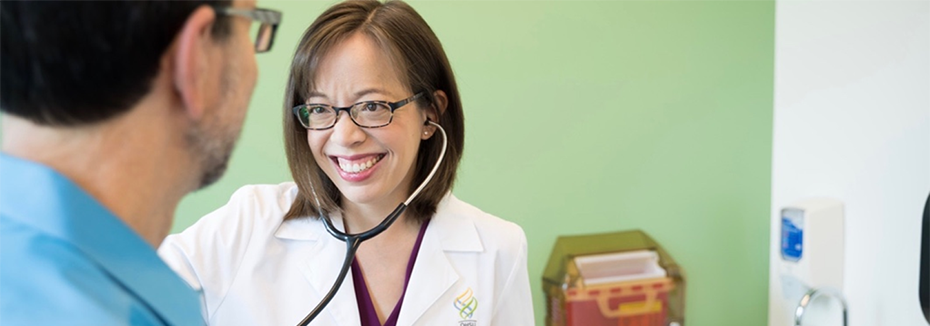For Health Care Professionals

OHSU partners with health care providers across the region. As Oregon's only public academic health center, we work with you to improve the health of people in Oregon and beyond.
Our specialists can help you provide your patient with the right care in the right place at the right time. We offer several options.
Quick links
Refer a patient
You can refer your patient to OHSU or OHSU Doernbecher Children’s Hospital. Our Referral Service offers patient referral checklists for many diagnoses.
In some cases, you may have the option of an electronic referral (eReferral) to OHSU or Hillsboro Medical Center, an OHSU Health partner.
Call 503-494-4567 for help or to seek provider-to-provider advice.
Find an OHSU provider
Track your patient’s care
You can use EpicCare Link to follow your patient’s care at:
- OHSU Hospital
- OHSU Doernbecher Children’s Hospital
- Our OHSU Health partners, Hillsboro Medical Center and Adventist Health Portland
EpicCare Link provides secure, HIPAA-compliant, real-time access to your patient’s medical records and activity.
Get an eConsult with a specialist
We offer access to expertise from an OHSU specialist. An eConsult is a non-urgent electronic request for written guidance on a specific clinical concern. If you are a licensed, direct-care provider in Oregon or Washington, you can send clinical questions, along with all appropriate medical information, and get advice or care recommendations electronically in EpicCare Link within about three business days.
This service supports you in managing your patients in your community. An eConsult alleviates barriers to access like distance, wait time and specialty care shortages.
- Learn which OHSU specialties take part in eConsults.
- Learn more about eConsults from our Provider Relations team: liaison@ohsu.edu
If we accept your request, an eConsult can advance your patient’s care and support continuity of care in case of referral to OHSU. Your patient will have fewer unneeded visits and tests and, in most cases, will pay less out-of-pocket.
For more information about eConsults: Contact our Provider Relations team at
liaison@ohsu.edu.
Advice line: Physician Advice and Referral Service
If you are a licensed, direct-care provider in Oregon, you can call the Physician Advice and Referral Service line, which OHSU provides for free as a service to the state.
OHSU specialists can offer:
- General care advice for patients who don’t need a transfer to OHSU
- A few options for treatment considerations
- Recommendations for whether a patient would be best served with an OHSU visit (in-person, virtual, telephone)
- Note: Advice calls do not offer chart review, radiology imaging review or discussions about possible inter-hospital transfers.
Call us at 503-494-4567, prompt 3
Hours are 7 a.m.-7 p.m. daily for most specialties.
When providing advice to you, OHSU physicians are not diagnosing a patient's condition, nor are they providing treatment to a patient. Thus, they are not establishing a physician-patient relationship. All treatment and diagnostic decisions remain with you, the treating provider, when an OHSU physician is providing advice to you.
Request a patient transfer
If you are a health care provider, you can call the OHSU Health Patient Transfer Center 24 hours a day to request a transfer:
Telemedicine
Through our telemedicine network, we partner with community hospitals and providers to give patients timely access to OHSU specialty care.
You’ll find:
- Acute care services that include virtual ICUs
- Outpatient services that include virtual and phone visits
- Transitions-of-care programs, for remote patient monitoring
Other services and resources
Continuing professional development: Take advantage of educational events and activities for health care professionals.
Credentialing resources: Verify a practitioner’s affiliation, status or standing.
Emergency Communications Center: Get contact information for emergency and critical care, including patient transfers, pediatric and neonatal transport and POLST.
Diagnostic radiology resources: Find policies; protocols for MRI and CT scans; safety data; and pediatric radiology measurements.
Information for providers: Fetal care, headaches and migraines, and pituitary disorders.
Lab Services: Request phlebotomy services for your patient, send specimens to OHSU and more.
Oregon Behavioral Health Coordination Center: This service helps doctors and health care centers find beds in Oregon for adult and pediatric patients who need acute or residential behavioral health services.
Oregon Medical Coordination Center: This service helps hospitals place patients when they lack the capacity or capability to place patients at facilities within their system.
Provider Relations: Meet the team dedicated to keeping you connected to OHSU clinical programs and staff.
Find an OHSU provider
Clinical trials
Find a clinical trial for your patient.